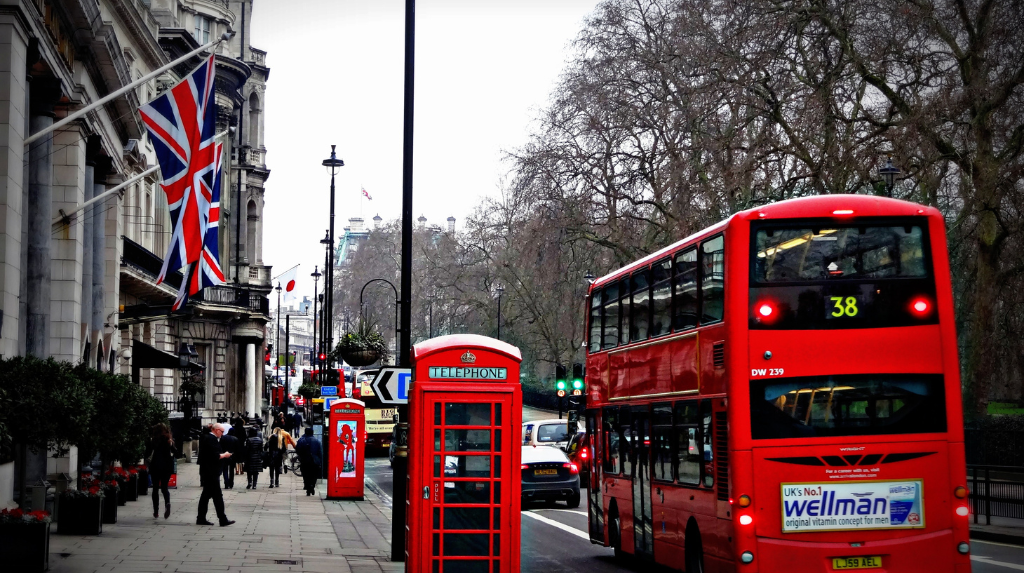The EU settled status via the EU Settlement Scheme is a vital step to be taken by the EU, EEA, and Swiss citizens in Great Britain if they consider the UK their home. The due date that is considerable for many of them is 30th June 2021 excluding applications that fall under special circumstances and exceptions, and also includes upgrades from pre-settled to settled status, family reunification, and especially visa holders. Through this detailed guide, you will find out the process steps, needs, and other essential items as well as some tips to apply to your application successfully.
Getting Started
While having just started you have to take the initiative and collect all the required papers and data. Here’s what you’ll need:
1. Identity Document
To register you shall need an identity document which can be your passport, national identity card, certificates of citizenship, or dispensation certificates or permits.
2. Digital Photo
A digital copy of your face has been sent to you and you need to send it along with the application. You can take any selfie of your choice, while you are going through the process.
3. National Insurance Number or Proof of Residence
It is there that you will be requested to present your National Insurance number or documents as to your stay within the United Kingdom. NI (National Insurance) number would be ideal.
4. Mobile Phone Number
Kindly check the active mobile number and do not forget to provide your number to get notifications and updates as the submission process is being carried out.
5. Email Address
Be sure to provide a valid email address so that you can receive notification while your application is undergoing the process.
6. Proof of Relationship (if applicable)
In the case of visas for family members, you’ll have to demonstrate that you are a relative of the applicant.
Choosing Your Identity Document
Whether your decision of the identity document you will choose during your application will be easy or not, depends greatly on that. Consider the following based on your nationality:
For EU, EEA, or Swiss Citizens
Whether it’s your passport or another national identity card, that will be sufficient. To minimize the risk of sending the original document to the Home Office, I would recommend applying for an identity document with an integrated biometric chip bearing a certain symbol which allows for scanning which effectively helps avoid the need to send the document physically to the Home Office.
For Non-EU, EEA, or Swiss Citizens
The label at the top of the card should be ‘Residence Card’ if it is this type of card is better to be carried around. Its back should be checked and in case it’s labeled ‘EU Right to Reside, it is advisable to carry it around with you. Applicants now only need to do face recognition when they are at the place applying for the visa, which is a huge simplification.
In case you don’t have a biometric residence card, you can apply for a residence permit, a passport with a biometric chip, or an NFC chip. While here you submit the supporting documents to the Home Office and coordinate that your relationship with the family members from the EU, EEA, and Switzerland are proved.
Proving Your UK Residence
The UK government’s requirements are neither complicated nor difficult to meet. To find out if you can apply for pre-settled or settled status, you must prove how long you have stayed in the UK. The easiest way to establish if you are eligible is by presenting your National Insurance number at the enrollment that you make. Nevertheless, if you had stopped working or had been absent from the UK during certain periods you had to provide some proper documents to ensure a flawless National Insurance record.
For example, if you have a ‘permanent residence document’ or ‘indefinite leave to remain’ or ‘indefinite leave to enter,’ according to these documents, you will be able to evidence your degree of residence without any difficulty.
Finding Your National Insurance Number
Your National Insurance number is a golden key needed for your (elaboration). If you are unsure about where to find it, you can:
Look over the last payslip or any other letter you picked up at HM Revenue and Customs.
You can get further support from the National Insurance call centre and, if you can’t find your number, you may need that help.
Determining Required Evidence
The evidence you need depends on your specific circumstances:
The Applying after the Settled Status is Granted
In case you are filing the applications late in 2020 then all you need to showcase is that you had lived in the UK for at least one day on or before December 31, 2020, & the last time you left the UK was at least after six months from the stipulated date.
Applying for Settled Status2
To get a comfort status you must report evidence of being in any 6 months out 12 months during the last 5 years. These from 5 years before have no problem of being the latest; you can decide a difference of 5 years as long as you have not for more than 5 continuous years within the UK since then.
There are exceptions to the continuous residence requirement for individuals who were:
The exemption for student visas, dependents wanting to join the temporary resident, and those seriously ill widen the employment category to include mothers giving birth, those being trained in work, and employer-sent workers for up to 12 months away from the country.
On compulsory military service.
With the British army or being related to someone in their army.
In the UK government or its constituent governments such as of Scotland or Wales together with the office holders of Sir NI executive or the British Council or in that of someone related to the above.
Furthermore, to decide such exceptions, it would be better to ask for Citizens Advice union office help.
Accepted Documents
All records should state your name and the best date. To increase your chances of acceptance and making history, ensure your papers cover a considerable period. You can upload up to 10 documents during the application without issue, unless the Home Office contacts you for additional ones.
Document Requirements for Gaps in Employment
This is relevant for those who are finding job gaps during this time and need proof which dates their UK residence throughout these periods. Consider using documents such as:
- Council tax bills.
- Mortgage receipts for your house, up to four bedrooms
- Such agreements are accompanied by deposit money receipts (for instance – bank statements or receipts) into a bank account.
- Annually a bank statement or a sum of transactions.
- Payslips.
- Both are Across the life bills like electricity, gas, and water utilities.
- Other than household bills (such as from repairs, home insurance, or pet care) with traceable receipts of payment.
Self-Employed or Business Owners
If you’re self-employed or run a business and lack a full tax and benefits record, consider using the following evidence:
- Annual business accounts.
- Council tax bills.
- Your mortgage or rent receipts (in case you own a house or an apartment).
- If possible, tenancy agreements along with evidence of payments should be included (for example, in the form of bank statements or receipts).
- Invoices for work completed in the UK, along with evidence of payment (e.g., bank statements).
Bills in Someone Else’s Name
If everything is in someone else’s name billing history and you haven’t created a full tax and Benefits record you have some options for proof. Consider using:
- Letters or appointment references from records operators. It helps patients to remember their next appointment or delivery date.
- Annual statements of accounts or account summaries. Listen to the given audio and then repeat the exercise.
- UK banks receive monthly delivery of bank statements, followed by tracking UK payments.
- Validation of an airline, train, ferry, or ship ticket via the mentioned data indicates the exact date of arrival in the UK.
- A stamped entry into the UK is recorded on a page of your passport.
- Your mobile bill, in your name and with your postal address in London.
- Another dataset about the invoices as evidence of payment (e.g. for repairs, home insurance, or pet care)
Living in Unique Circumstances
Individuals residing in unique situations should consider the following guidelines:
Living in a Care Home
If you reside in a care home, provide evidence such as:
- Copies of a letter from the care home of your choice, which proves that you are one of the residents.
- My policy would be to provide all users with the option to view their annual bank statements or account summaries.
- Pension statements.
- Financial reports, including UK origin payment proofs or utility bills to prove maintenance expense proof of accommodation.
- Sending delivery from healthcare entities like health officials or nurses.
Living in a Shared House
For those living in shared houses, acceptable evidence includes:
- Modern phone invoices or messages with your UK address in them.
- Providers have to turn to doctors’ letters or confirmative posts of appointment. In this kind of situation, the psychological health is at stake.
- All bank account statements you receive every year and back.
- More monthly statements of bank accounts describing either UK payments received or expenses itemized.
- A traveling ticket with engraved information on your method of travel which you have used to enter the UK.
- The county either formulates or obtains a passport that is duly decorated with a stamp conforming to the United Kingdom.
Proving Different 5-Year Periods
If you are challenged on profound residence in the UK from more than five years ago to the present, you should start proving your continuity of stay with documents that cover a long time. Accepted evidence includes:
- Hence, ensure that you have your P60 or P45.
- For instance, requesting a letter from your employer by which your work might be certified.
- Periodical online reports on deductions from your salary on behalf of your employer.
- Council tax bills.
- The statements of the mortgage payments for your house or flat.
- A rental agreement and utility bills shall serve as proof of payment (e.g., bank transactions or paid receipts).
- Yearly bills are like a statement of your bank account.
Demonstrating Arrival by December 31, 2020
To prove that you arrived in the UK by December 31, 2020, acceptable evidence includes:
- A used airline, train, ferry, or ship ticket showing your departure date into the UK (e.g. airline boarding pass or its equivalent verifying arrival date).
- A thud conclusion regarding your flight into the UK.
- Bank statements show every month where bills or earnings were made to or from the UK.
- A UK-based mobile number bill in your name and registered in the same UK address.
- In summary, everyone has to pay municipal tax, water, electricity, or gas utility bills.
- Keynote speeches, letters, and appointment cards by healthcare officials.
Permanent Residence Document and Indefinite Leave to Remain
If you possess a permanent residence document or indefinite leave to remain, specific requirements apply:
Permanent Residence Document
In this document, one can find authorization for a permanent residence certificate. Here, you will be asked to identify your Republican residing document number as well. Luckily you do not need to submit either of your National Insurance numbers giving any evidence of how much you spent in the UK.
Indefinite Leave to Remain
‘Indefinite leave to remain’ for you is not a case and you don’t have to make an application to the EU Settlement Scheme to stay in the UK after Brexit. On the other hand, you have to type in the date you have been given indefinite leave to remain in the country when you apply. You usually can locate this date on a letter from the Home Office or in your passport that has a stamp showing the date.
Criminal Records and Pending Trials
Under the scheme, on applying, individuals after the age of 18 have to answer questions about whether or not such a person has any crime convictions in the UK as well as in other countries for which that individual has criminal records. As well, crimes in trials that are yet on the way must be addressed likewise.
What Counts as a Crime in the UK
If you’re convicted of any offense in the magistrates court or crown court in England and Wales, it activates your criminal record in the UK. In Scotland, the justices of the peace courts are quite common Similarly, sheriff courts and higher courts can also be jails for the convict.
Notably, you do not need to disclose the following:
- Life beyond murder, rape, trade disputes or legal issues about personal matters, the like of debt or credit, and family hearings that didn’t necessarily have to do with the state and work of the state.
- Fines for on-street parking space infractions OR the notices within the Councillor local authority fines related to traffic rule violations (known as penalty charge notice).
- The court summons regulation may now overlook many driving offenses that no longer require the police to note down the offender’s name and address.
- Information or warning (e.g. police stab) recorded at a police station.
In summary, securing pre-settled or settled status in the UK through the EU Settlement Scheme is a significant step in ensuring your future in this country. By diligently gathering the necessary documents, providing evidence of your UK residence, and addressing any criminal record-related questions, you can navigate the application process with confidence. While the application process may seem complex, the key is to provide comprehensive and accurate information to support your eligibility.
How Law and Visas Can Help?
At Law and Visas, our team of expert immigration consultants is here to make your travel to the UK straightforward and successful. Whether you’re applying for a Visitor Visa or a Study Visa, we handle every step from preparing your application to gathering the required documents.
Our immigration Consultants and Lawyers ensure that your application meets the highest standards, with no details missed. We’ll also keep you informed throughout the process and coordinate with the immigration office or embassy on your behalf.
Law and Visas has a strong record of helping clients secure the visas/permits they need in the UK. Call us today at +234 812 5505 986 to learn how we can assist you.





